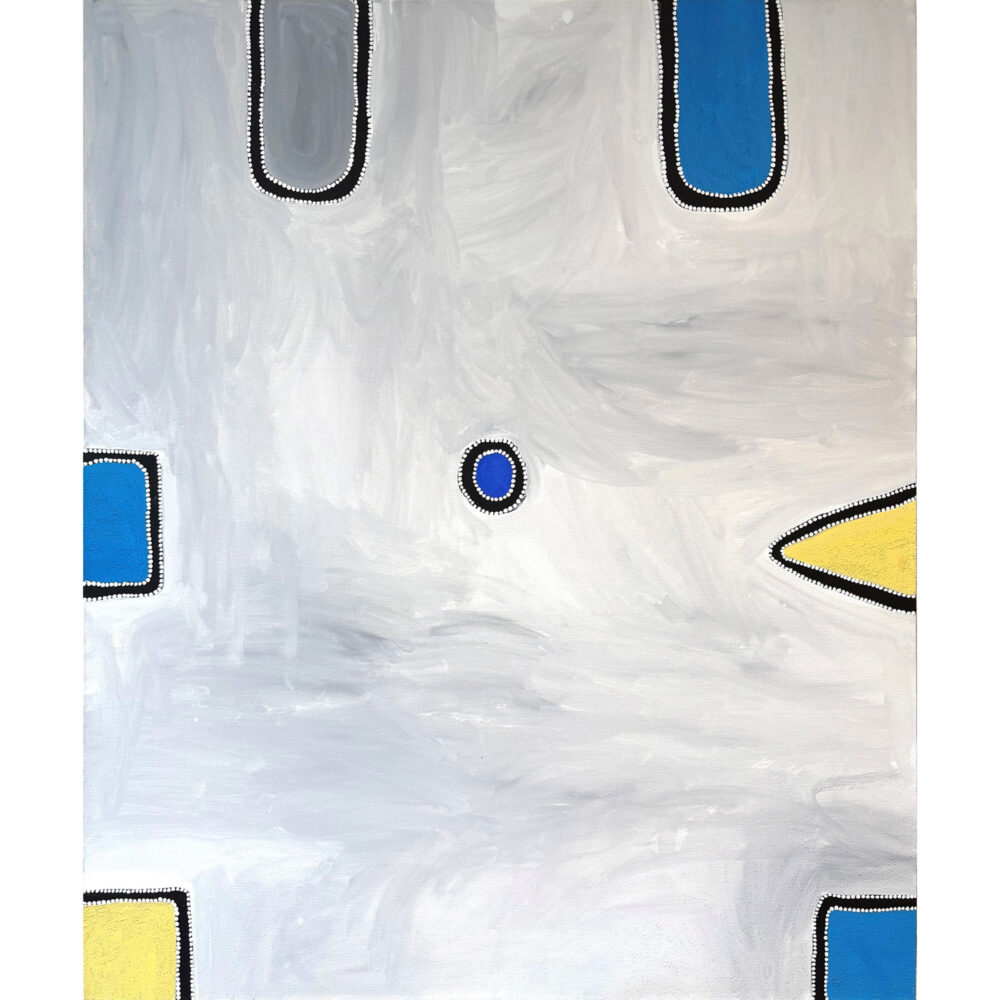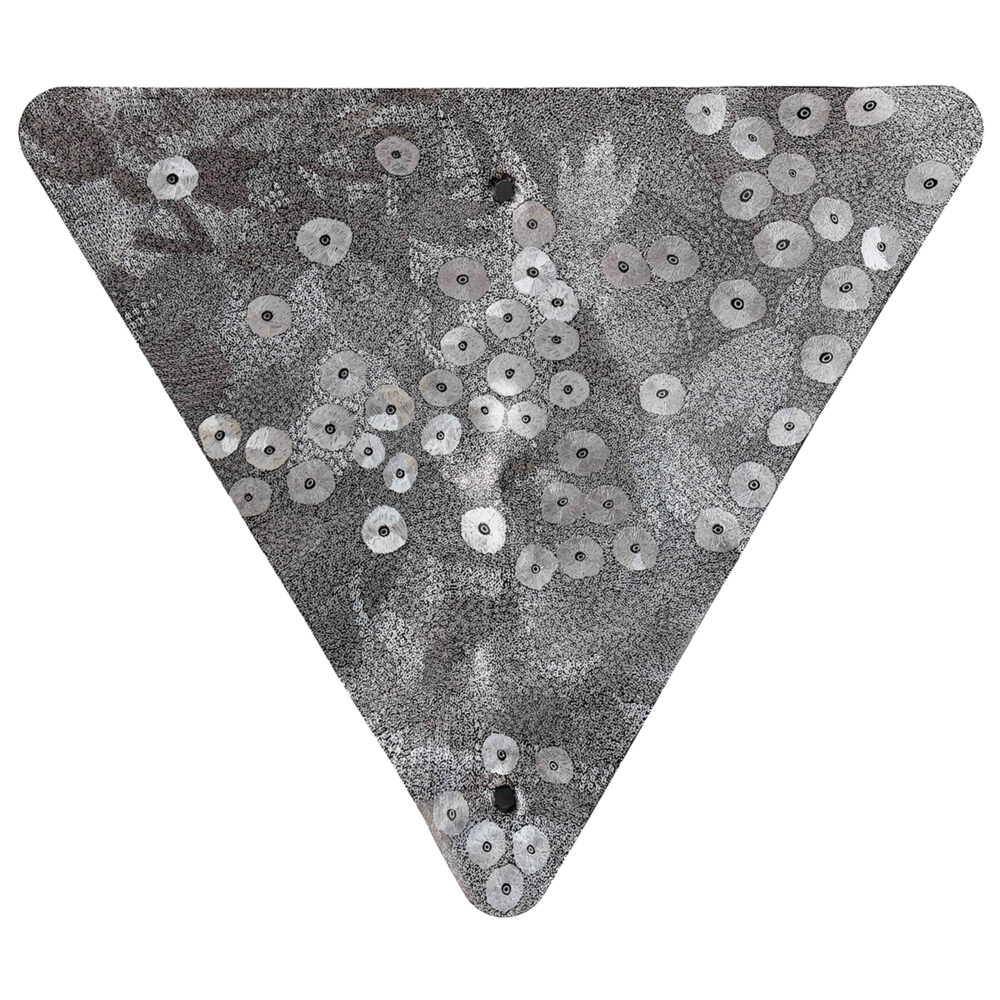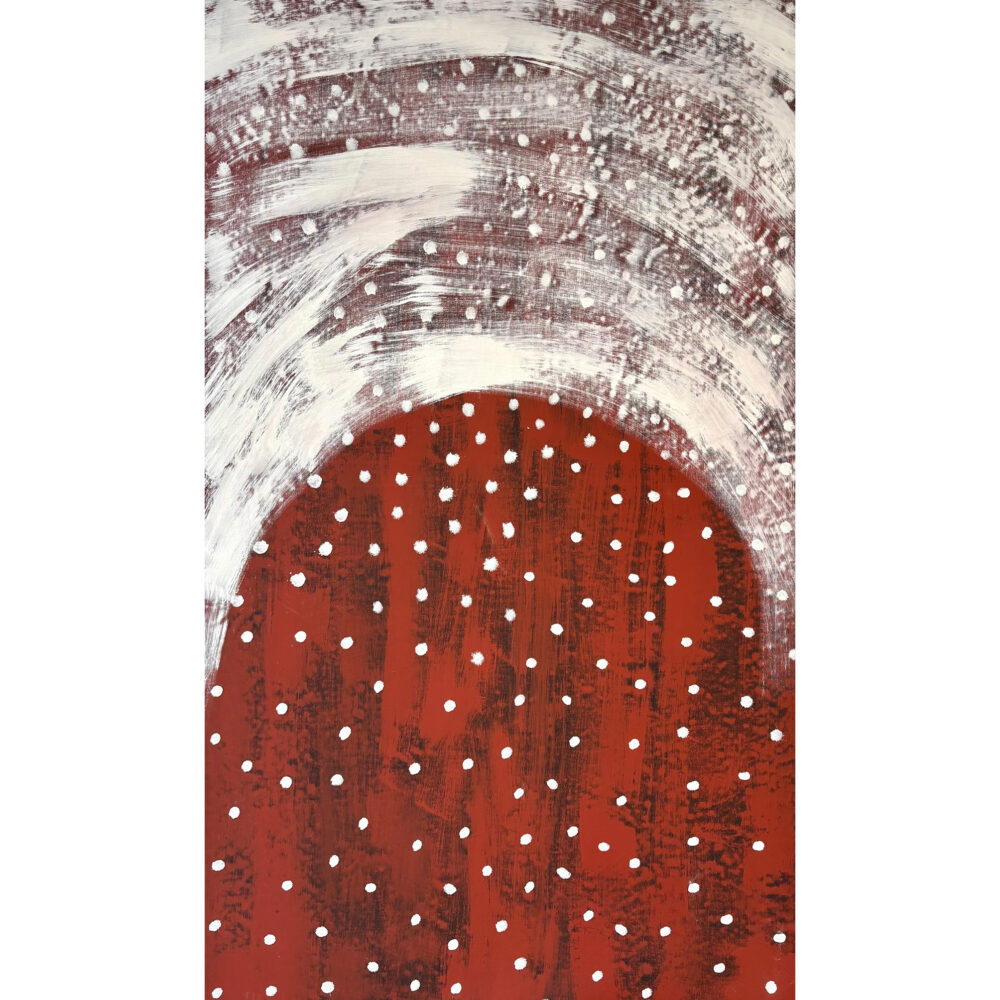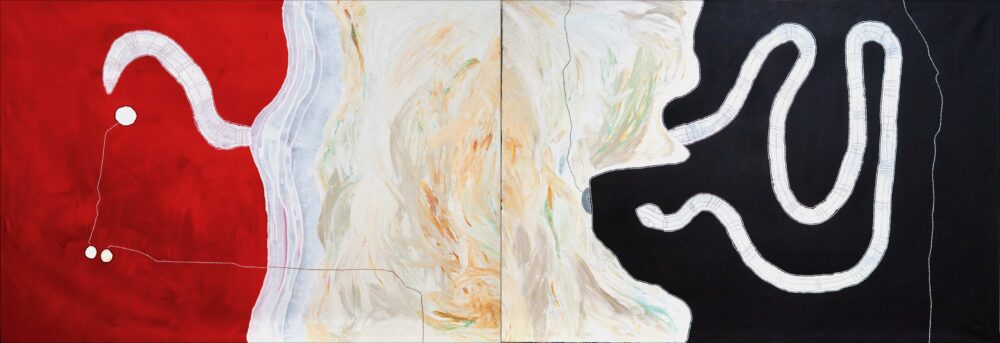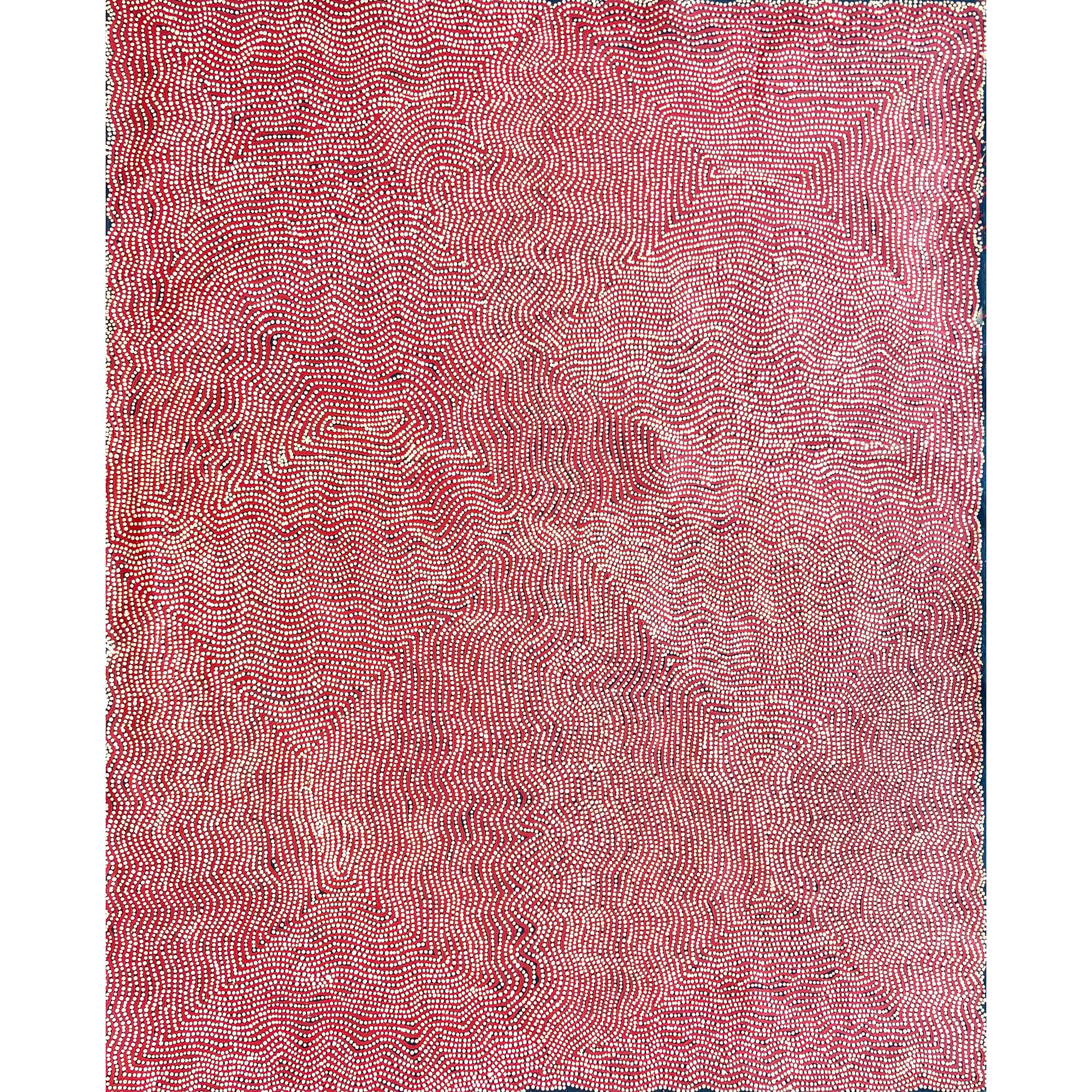
Tjapangati, a Pintupi man, began painting for Papunya Tula in 1977, joining the cooperative in its formative years and aligning himself with the first generation of Western Desert artists. During this period, Tjapangati worked to translate ceremonial and sand-painting traditions to works on canvas, ensuring the preservation and wider recognition of these cultural narratives. Pirrinya, 2004 depicts designs associated with the swamp site of Pirrinya, northwest of Jupiter Well, Western Australia. Rocky hills nearby trap water during rain. In mythological times, a large group of Tingari Men visited this site before travelling east through Yunala and Tarkul, then north to Lake Mackay. Details of the Tingari Cycle remain secret. Generally, the Tingari are ancestral beings whose travels and rituals shaped the landscape and are remembered in song cycles, still taught to post-initiatory youth.
Pirrinya, 2004
PROVENANCE
Papunya Tula Artists, Northern Territory, 2004
Palya Art – C2000, 2008
Private Collection, Western Australia
Cooee Aboriginal Art Auction, Cooee Art (Art Leven), December 2019, Lot 40.
Private Collection, USA
$24,000 USD
Tjapangati, a Pintupi man, began painting for Papunya Tula in 1977, joining the cooperative in its formative years and aligning himself with the first generation of Western Desert artists. During this period, Tjapangati worked to translate ceremonial and sand-painting traditions to works on canvas, ensuring the preservation and wider recognition of these cultural narratives. Pirrinya, 2004 depicts designs associated with the swamp site of Pirrinya, northwest of Jupiter Well, Western Australia. Rocky hills nearby trap water during rain. In mythological times, a large group of Tingari Men visited this site before travelling east through Yunala and Tarkul, then north to Lake Mackay. Details of the Tingari Cycle remain secret. Generally, the Tingari are ancestral beings whose travels and rituals shaped the landscape and are remembered in song cycles, still taught to post-initiatory youth.


